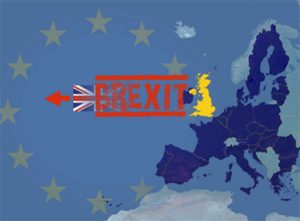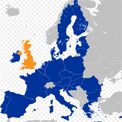Did the Sky Fall Following the Brexit?

Home Page / August Newsletter / Newsletter Home

Brexit – Known as the Britans Exit from the EU
To give you some perspective, if you were investing one hundred thousand pounds on July 24th 2016 to buy a US business for your E2 Investment visa you would get you $131,110 USD. In contrast that same investment on June 24th 2016 would get back $136,940.00, a difference of $5,830.00. So sure, the pound has not yet fully recovered fully its losses from June 24th, but in all fairness the pound and dollar exchanges are constantly shifting slightly up and down anyway.
So the verdict is the economic sky has not fallen “yet” in the UK, but there are many challenges ahead.
Let’s Get on With the BREXIT
In order to begin the formal process of the UK actually leaving the European Union, they have to invoke Article 50 of the Treaty of Lisbon. This treaty was signed by EU member states on December 13th 2007 and came into force December 1st 2009. The Brexit would be the first ever use of Article 50.
Article 50 reads, as follows: –
Article 50.1 – Any member State may decide to withdraw from the Union in accordance with its own constitutional requirements.

The European Union Flag
Article 50.2 – A Member State which decides to withdraw shall notify the European Council of its intention. In the light of the guidelines provided by the European Council, the Union shall negotiate and conclude an agreement with that State, setting out the arrangements for its withdrawal, taking account of the framework for its future relationship with the Union. That agreement shall be negotiated in accordance with Article 21893) of the treaty on the Functioning of the European Union. It shall be concluded on behalf of the Union by the Council, acting by a qualified majority, after obtaining the consent of the European Parliament.
Not being an expert in European Constitutional law, what can be gathered from the above article is that Britain has to notify the European Council of its intention to leave the EU and negotiate its future relationship with the EU. Article 50 does not stipulate how long these negotiations will take but its commonly believed that it could take several years.
The new British Prime Minister Theresa May has vowed to see Britain through this BREXIT but has also decided not to file an Article 50 application until 2017. Whilst no specific reason as been stated for the delay the speculation is that before Britain can commence negotiations it must first figure out who do the negotiating and what kind of legal team they would need to assemble to support the government ministers in process.
Life and Business as Usual?

The Process to Exit Begins
In terms of any real day to day changes in everyday life, nothing is likely to change for some years. It’s true that many businesses with a history of dealings with the EU will need to make arrangements to ensure that they are able to continue to trade. However, until the government in the UK has negotiated an agreement and its terms are published, EU businesses will be unable to make any definitive plans. For example, the UK could agree to a tariff free trading zone that does not include the free movement of people. If that deal were to be struck then businesses could trade as usual.
Many pundits argue that the EU would never agree to such a deal, as at the core is the doctrine of freedom of movement. For example, Norway is not part of the EU but has a trade agreement with the EU that is predicated on the doctrine of freedom of movement, so in order to get the trade deal they also had to accept freedom of movement. As Britain voted to leave the EU, arguably, in large part due to the doctrine of freedom of movement they have some hard negotiations ahead.
Scotland and Northern Ireland Voted Not to BREXIT

Northern Ireland’s First Minister Arlene Foster, left, with Scotland’s First Minister Nicola Sturgeon
Scotland and Northern Ireland overwhelmingly voted to remain in the EU, however they are not sovereign nations, after all it is the United Kingdom, just like it’s the United States. We’re all in it together. The only way Scotland and Northern Ireland could remain in the EU would be two-fold. Firstly, they would have to secede (breakaway) from the United Kingdom, and secondly they would have to negotiate with the EU as to whether or not they would have to qualify anew in their own right and be able to meet all of the entry criteria. Alternatively, they could negotiate that since they were already in the EU and chose to remain in the EU, their membership should continue as before.
Scotland’s First Minister has already gone on record that Scotland intends to fight to remain part of the European Union, although it’s unclear whether the people of Scotland are ready to vote in the majority to leave the Great Britain. On September 18th 2014, Scotland voted in a referendum not to secede from Britain by 55.3% against and 44.7% to remain. At the time the UK government was so confident it was going to defeat the BREXIT vote that it campaigned in Scotland saying that a vote not to leave Britain would guarantee Britain would stay in the EU. So the irony is that having followed the British government’s campaign to stay together in 2014 and ensure their place in the EU, the British government actually lost BREXIT vote in 2016 and thus must leave the EU and take Scotland and Ireland out with them.

Call Us Today – We Will Help You Find Your Path
Conclusion
My conclusion on BREXIT is, “what a mess”. But it’s not a mess that cannot be cleaned up after an arduous negotiation process. My experience in the business industry and working with investors from around the world tells me that business will not lose out. Deals will get done so that buyers and sellers can continue to buy and sell their goods and services because, after all, no one wants to stop or impede trade. In the mean time, every day life simply goes on.

Immigration Law Offices of Chris M. Ingram
US Immigration Law Offices of Chris M. Ingram
Chris M. Ingram LL.M., ESQ – Immigration Attorney
Admitted in New York.
Practice Specializing in US Immigration Law
401 Wilshire Boulevard, 12th Floor,
Santa Monica,
California 90401
Tel: 310 496 4292
Everyday the Law Offices of Chris M. Ingram provides a comprehensive range of US Immigration expertise. We also provide a free consultation for our prospective clients.
Please note that nothing contained in this website or link therefrom shall be regarded as providing legal advice. Please contact us directly for legal advice specific to your situation. Thank You.
Specializing in the E2 Visa, EB1 Green Card, L-1A Visa and O1 Visa and K1 Visa Marriage-Based Immigration. Attorney Chris M. Ingram is dedicated to providing the very best in US Immigration legal representation. Enjoy our website.
Important Notice: Please note that all videos created by the Law Offices of Chris M. Ingram are intended as general information only and not specific legal advice pertaining your case. If you would like specific legal advice on any immigration matter please do not hesitate to contact this law office accordingly. All pictorial images used in these videos and the website in general are licensed stocked images and not portraits, or otherwise, of anyone from the Law Offices of Chris M. Ingram, nor of its clients unless otherwise indicated by name. All images are used solely for illustrative purposes only. Copyright 2010-2015 All Rights Reserved.

